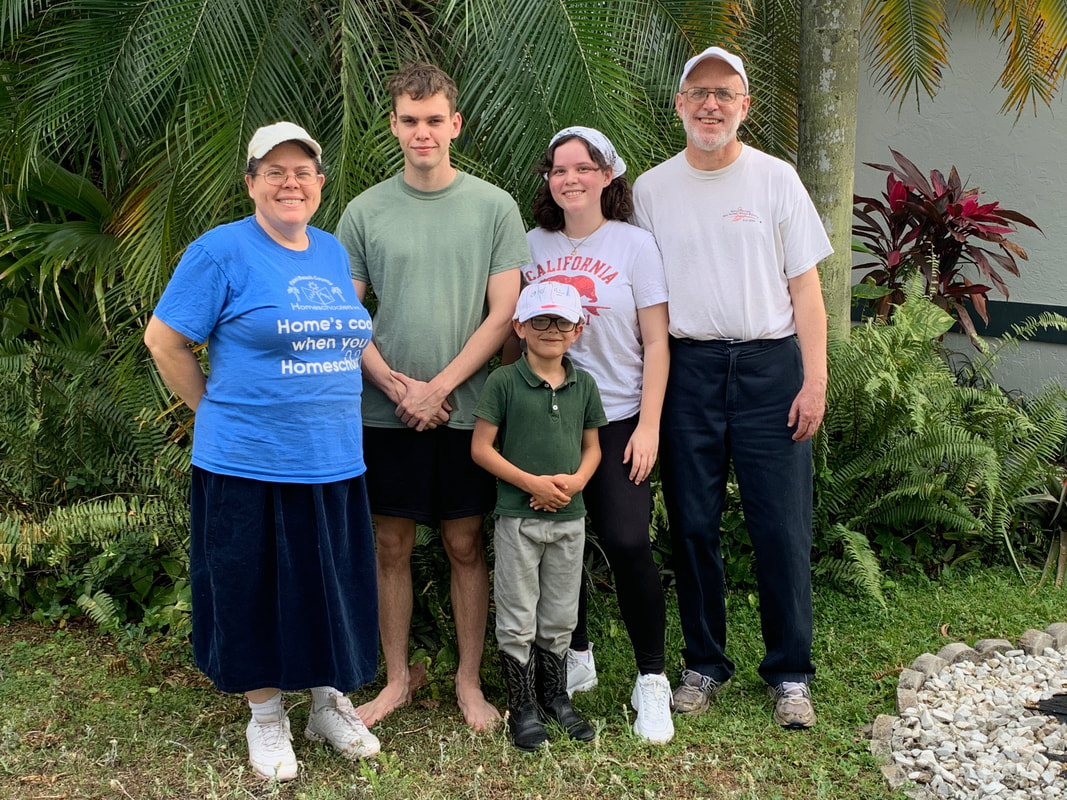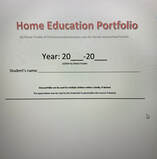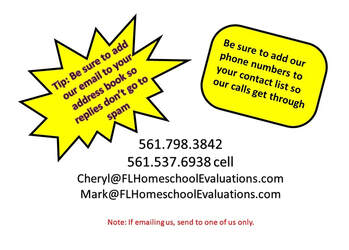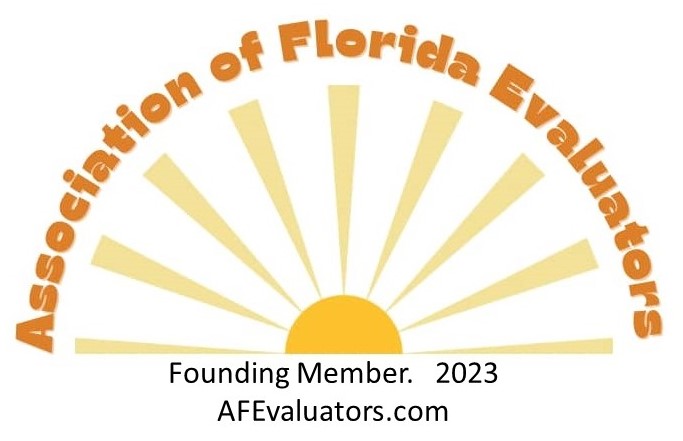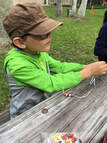|
Decades ago, when I was homeschooled, there were few curriculum options available to homeschooled students, homeschooling wasn't clearly legal in most places, and homeschooled children had few options to socialize or experience group learning events common to schooled children. But that's no longer true. Homeschooling has grown to the point that there are many resources for homeschooled children. Many publishers and programs actively pursue homeschoolers. Colleges make it easy for homeschoolers to apply with special forms and requirements designed just for them. Homeschool groups host a variety of clubs, classes, dances, field trips, science fairs, sporting events, talent shows, and more. A graduation ceremony with hundreds of homeschoolers from across Florida happens every May. Many homeschooled students graduate high school with college credit already earned. And more. Homeschooling doesn't have to mean sitting at home for 6 or 7 hours a day, working alone at a desk, with little interaction with other children. Instead, many homeschooled children get together with others through support groups and co-ops for some or all of their learning. They visit museums or zoos or other educational institutions and might take classes or have guided tours. They may go to sports practice or scouting groups specifically for homeschoolers. They may take classes online with others around the state or even around the world. Many children were forced to learn at home when public schools shut down due to the pandemic in the Spring of 2020. Many may equate that experience with homeschooling, but learning at home when a parent gets to choose the learning materials and methods, the assignments and schedules, etc. is very different from learning at home through a school's hastily-organized program. When parents are in charge, they can work with the child's learning style, skip lessons the child has mastered, go back and better prepare the child for lessons that were frustrating, get snacks and exercise when needed, use the child's interests to maximize learning, and more. The option of finding others to periodically learn with can enrich homeschooling greatly. The ability to help your child learn at his or her own pace makes true homeschooling so much better than anything most schools offer. Cheryl Trzasko, Oct. 2022 How many homeschoolers are there in Florida?
Home education statistics collected by the Florida Dept. of Education for 2021-2022 show 152,109 homeschooled children and 104,961 homeschool families in Florida at the beginning of the school year. This is up from their statistics for the previous school year which showed 143,431 home education students total statewide. Use the button below to view details including breakdowns by counties (every Florida county is a Florida school district). Note that these numbers do not include all the children learning at home. These numbers only include those home educating--i.e., who sent in a Letter of Intent. Those who learn at home under the auspices of a private school (aka umbrella school) or a public school (such as FLVS Fulltime or Connections Academy or other publicly-funded public school program) are not included as legally their parents are not in control of their education. How many homeschoolers are in the US?
Approximately 3.135 million children were homeschooled in the US in 2022 according to the National Home Education Research Institute. The link below gives data through 2022 regarding the number of homeschooled students, their average academic and social success, and more. . Home Education in Florida
During the early 1980s, changes in tax laws and school funding policies caused numerous private schools across the country to shut down. Parents who didn't want to send their children to public schools were looking for alternate education options. A combination of educational reformers such as John Holt and church/religious leaders encouraged parents to consider homeschooling.
At that time, enrolling in a private school that agreed to oversee learning done at home--though the school might be in some distant part of Florida--was the only legal option for having children learn at home. The private schools which agreed to oversee homeschooling families were nicknamed "umbrella schools." Families reported attendance to them and the schools provided records as needed--though some changed rules and/or fees without warning. In addition, truancy officials weren't impressed with the idea of attendance being kept though students never set foot on campus and went after many of these families, threatening to arrest families and/or take children into state custody (and sometimes actually did arrest and/or take custody.) Craig and Brenda Dickinson along with state senator Daniel Webster together fought to make homeschooling clearly legal without the necessity of a third party while including assurances that this wasn't being used as a loophole to excuse truancy. The result was the home education option for homeschooling. Home education requires
John Holt was an American educator and author who coined the term "unschooling" which originally meant educating outside of schools. He wrote books about why public schools were failing as well as books on unschooling and was part of a magazine called "Growing without Schooling." He is known by some as the Father of the Modern Homeschooling Movement.
|
|
The Trzasko Family
Cheryl & Mark Trzasko
(pronounced Trahs-koh) have homeschooled their own from the start. Two have graduated high school as homeschoolers with college credit earned already. One is now a teacher, and the other will soon finish serving our country. Our youngest are still learning at home. Cheryl was homeschooled for part of her early education. We are passionate about helping others homeschool and protecting their rights. Discover us on social media!We offer a free support group on Facebook for those who want more information.(This is not for advertising.) Answer the questions fully to join. (c) 2024
No. We do NOT want unsolicited website help. |
|


